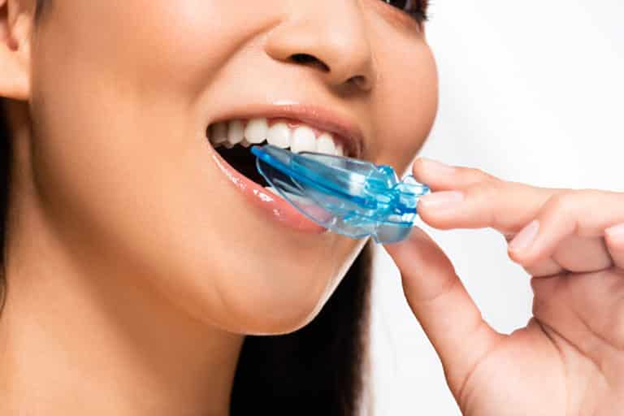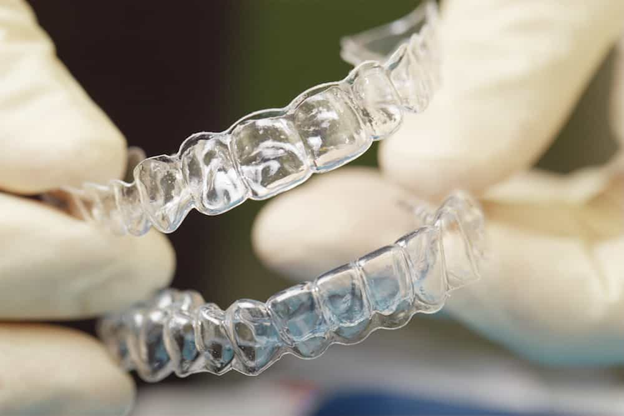Grinding Teeth at Night: Do I Really Need a Night Guard?
Night guards for grinding teeth
How Night Guards can Protect you from Grinding your Teeth
Bruxism, the clenching or grinding of the teeth, is a common habit. You may do this without realizing it during the day, but it often happens during the night while you are asleep. This habit can be damaging to teeth, wearing them down over time. Often, a night guard will be prescribed to protect the teeth, but what is a night guard and is it always the best solution? Are there times when a night guard is not called for?
What is a Night Guard?
A night guard is a plastic dental appliance that looks similar to the trays used for teeth whitening. It does not stop you from clenching your teeth at night, but it shields and cushions the teeth, protecting them from damage while helping to re-establish the natural space between upper and lower teeth. Proper night guards are custom-fitted and made to suit your particular situation, unlike those that you might find in your local drugstore which are either stock night guards, or boil-and-bites.
Store-bought night guards are larger, poor-fitting, and may even come out at night during grinding. Custom-made night guards may be less appealing to you due to their higher price, but they are an excellent investment in the long run as they are made to fit your teeth exactly and much more likely than store-bought night guards to prevent you from needing more expensive dental work in the future.
Is a Night Guard Always the Best Option?
Night guards are designed to protect your teeth, and they do that job very well. What they don't do is address the root cause that causes the grinding or clenching, which can continue even after getting your night guard.
There are any number of reasons for grinding your teeth. One very common cause is stress, but sometimes the root cause is never found. It is always worth investigating however, as nighttime grinding of the teeth may be a symptom of something far more serious and even life-threatening: sleep apnea.
What is Sleep Apnea and How Does it Relate to Grinding the Teeth?
Sleep apnea is a sleep disorder in which breathing stops and starts repeatedly. There are three main types:
Obstructive Sleep Apnea is a common form and it occurs when the throat muscles relax.
Central Sleep Apnea is caused by the brain not sending proper signals to the muscles which regulate breathing.
Complex Sleep Apnea Syndrome occurs when a person suffers from both of the above types.
When you sleep at night and cannot breathe, your body tries to reopen the airways through reflexive actions such as grinding or clenching, which tends to bring the lower jaw forward and/ or moves the jaw from side to side, helping to open the airway. Before obtaining a night guard, you should be screened to determine if you are suffering from sleep apnea. If you are, treating it should be your top priority.
Can a Night Guard be Used With Sleep Apnea?
A variety of factors will determine the treatment for sleep apnea. One popular approach is an oral device worn in the mouth to hold the airway open. Another treatment is a CPAP machine, which involves wearing a mask through which air flows, forcing the airway open. In instances where other treatments fail, jaw surgery may help.
Opening the airway to provide better airflow may stop or greatly reduce the grinding and clenching, removing the need for a mouth guard and some of the sleep apnea oral devices also serve to protect the teeth.
So, Do I Really Need a Night Guard?
The answer will depend on the cause of the grinding. If there is an underlying cause that can be addressed, that may eliminate the need for a mouth guard. Other times, no root cause may be found, in which case wearing a night guard while sleeping will prove beneficial by protecting your teeth, possibly saving you from more expensive treatment down the road.
To learn more about night guards and whether they are right for you, contact us at Pier Dental Centre today, and we will be happy to address your questions and concerns.







